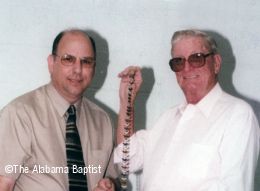Richard Allen (1760–1831), one of America’s most influential black leaders, was the founder of the African Methodist Episcopal (AME) Church. This year is the 200th anniversary of his election as the church’s first bishop.
The United States Postal Service honored him Feb. 2 with a stamp as part of its ongoing Black Heritage Series.
Allen was born a slave in Philadelphia, Pennsylvania, on Feb. 14, 1760. When he was 8 his owner, Philadelphia lawyer Benjamin Chew, sold him and his family to Stokeley Sturgis, a plantation owner in Delaware. Because of financial problems Sturgis soon sold Allen’s mother and three of his siblings.
‘I cried unto Him’
When he was around 17 he experienced a conversion. “I cried unto Him who delighteth to hear the prayers of a poor sinner and all of a sudden my dungeon shook, my chains flew off, and glory to God, … the Lord, for Christ’s sake, had heard my prayers and pardoned all my sins,” he said.
After Allen joined the Methodist church he influenced his master, Sturgis, to become a Christian. Sturgis then gave his slaves the opportunity to buy their way out of slavery. In 1783, after working extra jobs for five years, Allen bought his freedom for $2,000.
He began preaching in Methodist churches in the Baltimore, Maryland, area.
Returning to Philadelphia in 1786, he joined St. George’s Methodist Episcopal Church. He preached to African-Americans at special services at 5 a.m. on Sundays.
When they began attending regular morning services, the church started segregated seating. Because of this segregation Allen decided that black congregants needed a separate church. In 1787 he and other black Methodists formed the Free African Society in Philadelphia.
Allen founded the AME Church in 1794. It was the first independent black denomination in the United States. His church, Mother Bethel AME Church, is located on the oldest church property in the U.S. to be continuously owned by blacks.
In April 1816, Allen was elected bishop of the AME Church. He was the first black bishop in the U.S.
After his first wife, Flora, died in 1800, Allen married Sarah Bass, a widow. They had six children.
In addition to maintaining a home Sarah Allen led a missionary group which helped the clergy and the needy.
The Allens had a passion for education and organized day schools for children.
They also were fervent abolitionists. Their home and the basement of their church served as stops on the Underground Railroad.
Richard Allen died March 26, 1831, at his home. Many white people and free blacks from across the nation attended his funeral.
‘One of the purest friends’
Abolitionist William Lloyd Garrison wrote that Allen was “one of the purest friends and patriots that ever exerted his energies in favor of civil and religious liberty.”
Sarah Allen died in 1849 and was buried next to her husband on the lower level of Mother Bethel AME. Today the site houses the Richard Allen Museum.
Allen’s legacy remains strong. Mother Bethel AME still holds services and today the AME Church has 2.5 million members, 8,000 ministers and 6,200 congregations.





Share with others: